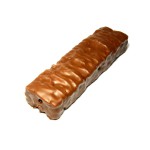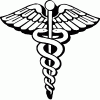Could a Poop Transplant Help You Lose Weight?

There have been a lot of outrageous weight loss strategies over the years, but a recent scientific discovery might take the cake. And eat it. And poop it into somebody else’s body. Sorry for that visual.
In a study published in Science Magazine, researchers at the Washington University School of Medicine in St. Louis found sets of twins in which one was obese and one was thin (an accomplishment in and of itself). They then transplanted fecal bacteria from both siblings into mice test subjects. The findings? The mice with the obese twin’s bacteria became obese (15-17% more body fat than their counterparts), while those with the thin twin’s bacteria remained thin.
It turns out the fecal bacteria of an overweight person differ in type and number than the fecal bacteria of a slim person. The bacteria in thinner people seem to be better at breaking down fiber, causing the body to burn more energy and reducing the buildup of fatty tissue. Perhaps even more amazing is the fact that when the obese mice began eating the thin subjects’ droppings (yes, they’re gross), they became thin as well, but when the thin mice ate the obese subjects’ droppings, they didn’t gain weight.
Before you run out and sign up to get a supermodel’s poop transplanted into your body — a procedure that, as ridiculous as it sounds, is actually used today to treat certain illnesses — the Washington University researchers are recommending a cautious (and less disgusting) approach. They want to study the fecal bacteria more closely to determine exactly which ones help trigger the weight loss so that in the future, patients can be given the bacteria itself — or even whatever weight-control substance the bacteria produce — rather than the feces itself.
It should be pointed out that even if transplanting fecal bacteria were to become an acceptable method of weight loss, it doesn’t mean you can eat whatever you want and still drop the pounds. In the study, the mice that went from obese to thin were fed a low-fat, high-fiber diet in combination with the thin bacteria. Mice who had high-fat, low-fiber diets did not lose weight.
So much for that Quarter Pounder with Cheese diet.
(Sources: Science Magazine, BBC, New York Times)







